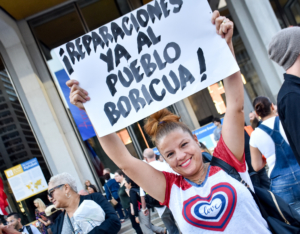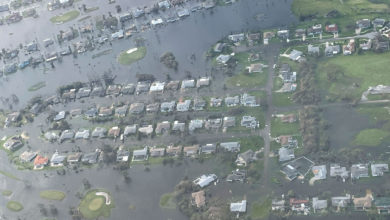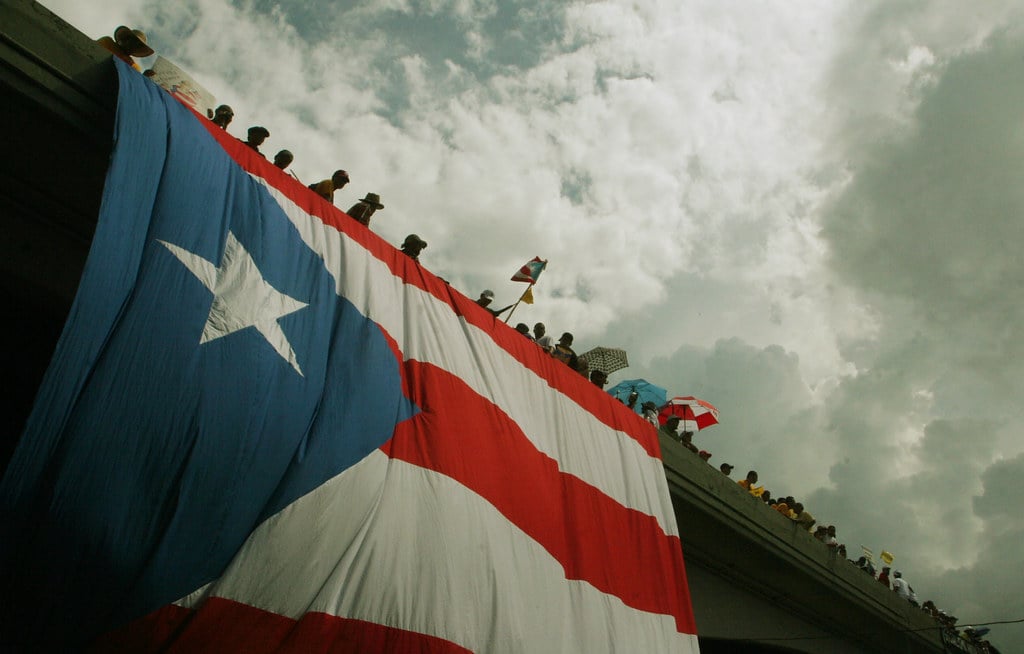
On Jan. 30, the US Federal Emergency Management Agency announced that it would end food and water aid to Puerto Rico. Over four months after Hurricane Maria made landfall in Puerto Rico, the island nation is still facing a massive humanitarian crisis.
In another inhumane display of callousness, FEMA announced on Jan. 24 that it was cutting off housing funds for dozens of Boricua families from the island now living in Connecticut hotels. This reversed a announcement just days before that FEMA would extend the program. Families are scrambling to find a place to stay or face homelessness in the middle of one of the coldest Northeast winters.
Back in October, Congress passed a disaster relief bill that gave Puerto Rico a $4.9 billion dollar loan, as opposed to a grant, which was given to other areas affected by last year’s deadly hurricane season. But on Jan. 9, FEMA and the Treasury Department announced that this loan would not be given through the Community Disaster Loans Program, due to the island nation’s current balance of $1.7 billion for ongoing operations. Essentially, the Trump administration has determined that Puerto Rico isn’t already poor enough to need this loan!
Government corruption and colonialism
At the same time, almost 3,000 pieces of material necessary for electrical repairs were discovered in a warehouse in Palo Seco during an early January raid led by federal officers. The U.S. Army Corps of Engineers and FEMA were both responsible for the distribution of these critical materials and both are to blame for this inexcusable oversight.
All of this, coupled with FEMA’s announcement Jan. 30, makes it clearer than ever before that the U.S. government has zero concern for Puerto Rican lives.
A worsening humanitarian crisis
About 40 percent of the population still doesn’t have power, widespread infrastructural damage hasn’t been fixed, and there is a major lack of access to clean running water. While the island’s capital of San Juan and other metropolitan areas have mostly been restored, more rural areas have been widely ignored. Puerto Ricans in the countryside and on the adjacent islands of Vieques and Culebra haven’t seen a dollar of federal aid and remain entirely cut off from the nation’s main electrical grid.
Half a million families are homeless, with 30,000 families enduring the winter with tarps covering the holes in their roofs.
A recent report found that suicide rate has increased 16 percent since the end of 2017, with about one Puerto Rican taking their own life every day. Health professionals and doctors attribute this spike to the horrific aftermath of the hurricane.
Dr. Kenira Thompson, head of mental health services at the Ponce Health Sciences University in Puerto Rico, told Newsweek, “A lot of patients are presenting severe mental health issues since the storm and the number of patients in our clinic has increased dramatically. Not one person that has lived through the storm can’t say they weren’t touched by what happened.”
Patients face issues including PTSD, clinical depression, and severe anxiety. Like most of the aid and restoration following Maria, the majority of the mental health clinics and resources are in the big cities like San Juan which leaves out those in the countryside and in poorer areas.
Mass exodus to mainland
As expected, Maria’s aftermath has included a massive wave of migrants seeking an opportunity to rebuild their lives and care for the families in the U.S.. In early January, the Florida state government estimated that over 280,000 Puerto Ricans have sought refuge in that state since the hurricane hit on Sept. 20. Of course, this figure does not account for the estimated hundreds of thousands more Boricuas who have migrated to other states. Cities like New York and Chicago already have large communities of Puerto Ricans who have migrated over the years due to increasing financial hardships on the island, but it’s clear that the hurricane has caused a sharp increase in migration.
That Puerto Ricans have U.S. citizenship plays a huge role in the swiftness and magnitude of migration from the island. The increasingly dismal situation in Puerto Rico guarantees that the rate of migration will not slow down anytime soon.
The Shock Doctrine
Canadian journalist Naomi Klein coined the term “shock doctrine” to describe how political and economic elites opportunistically use states of emergency to push their unpopular agendas and cash in on communities reeling from a crisis. This idea is also known as “disaster capitalism,” and Puerto Rico is a shining example of this disgusting practice at work.
Puerto Rican Governor Ricardo Rossello recently announced that the Electric Power Authority will be privatized, a dream realized for corrupt politicians and the billionaire American energy companies they serve who have long expressed their appetite for control of Puerto Rico’s electrical grid.
Boriquas take action
Last week, the government announced a bill that would allow cities to hire their own contractors, as municipalities across Puerto Rico still wait for federal repair crews to arrive. In the Boriqua spirit of collectivity and resourcefulness, some municipalities have decided to take matters into their own hands by assembling repair brigades made up of retired and jobless electricians. In the province of San Sebastian, a group of electricians have formed the Pepino Power Authority with the goal of restoring power to the entire municipality by the end of January. The crew has already restored electricity to 250,000 homes.
Unsurprisingly, their initiative has been with met with resistance by the Puerto Rico Electric Power Authority who accused the city of thwarting its monopoly. San Sebastian Mayor Javier Jimenez Perez admits that he did, but argues that they have taken sufficient security measures and at the end of the day, they haven’t been given much of a choice in their dire circumstances.
“The initiative arose because of how slow we saw the reinstatement of the service by the PREPA, in combination with the state of mind of our people. The name was something we put to this movement: Pepino Power Authority is the initiative they take in a town when government agencies do not have the capacity to be responsive to a need,” said Jiménez Pérez to endi.com.
On January 11, workers and residents in the city of Toa Alta took the streets to protest the Puerto Rico Electric Power Authority’s slow and mismanaged response to the power crisis. At that time, 65 percent of the city was still without electricity, including 20 businesses.
Pa’lante, Siempre Pa’lante! Forward, Always Forward!
The incredible resilience and optimism of the Puerto Rican people in the face one of its worst natural disastrous and economic crises is evident. While the U.S. government continues to oppress and sell out the population for profit, Boricuas continue to fight back. With Governor Rossello’s recent announcement privatizing the electric grid, it’s clear that the situation for Puerto Ricans on the island will continue to get worse. FEMA’s negligence of refugees in the states shows that Boricuas will be forced to struggle no matter where they turn.
Boricuas have struggled, since the Spanish conquistadors landed in Boriken in 1493. The fight to end the colonization of Puerto Rico goes on. This struggle for liberation needs to be supported by everyone.




